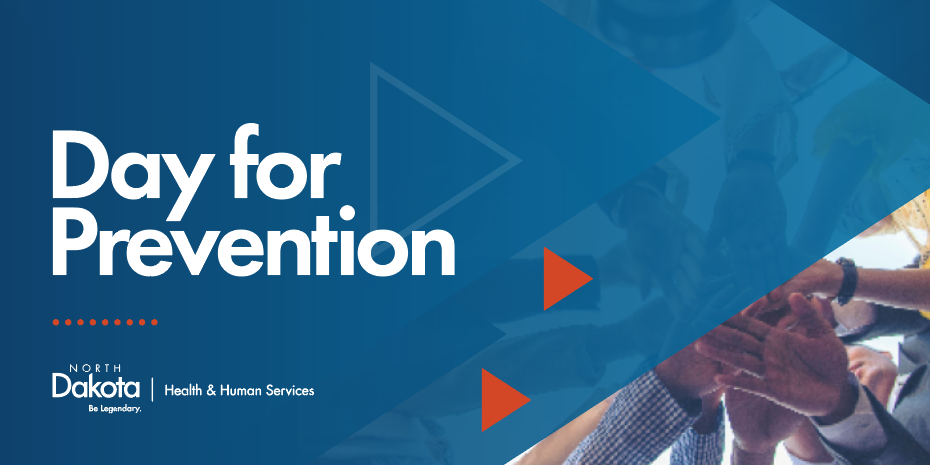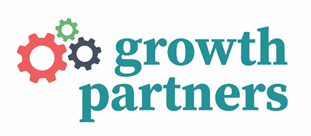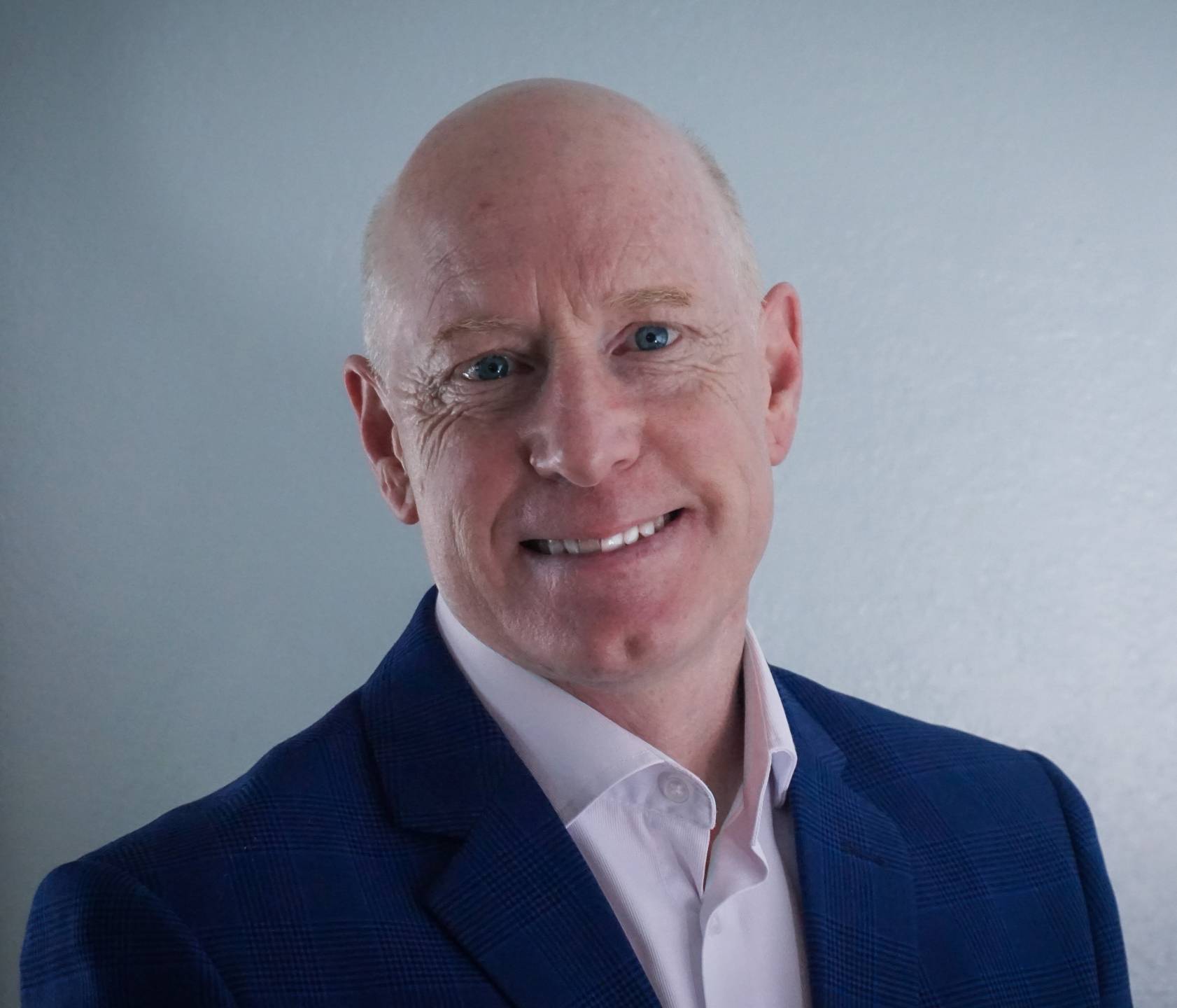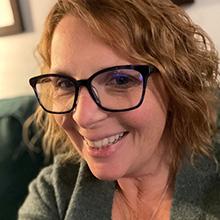Virtual Live Stream

This event is designed to increase awareness and collaboration on substance use prevention through data insights, effective strategies, and community engagement, fostering a unified approach to reducing substance misuse in North Dakota.
CEUs available
This event is approved for 5 CEUs by the North Dakota Board of Addiction Counseling Examiners, the North Dakota Board of Social Work Examiners and North Dakota Certified Peer Support Specialists.
Who Should Attend?
Public health employees; elected city, state officials (legislators); behavioral health & related college students; law enforcement; coalition networks; school behavioral health resource coordinators school social workers; school nurses; school counselors; school administrators; and treatment and recovery providers
Agenda:
| Time | Topic | Presenter |
| 9:00 | Opening Remarks | Laura Anderson |
| 9:15 | Prevention in North Dakota: What Substance Use Data in the State Tell Us | Eric Canen |
| 9:45 | Break | |
| 10:00 | Prevention Works! How it Works! And Why it’s Worth it! | Dr. Rodney Wambeam |
| 11:00 | Implementing Success: Understanding the Components of Effective Prevention | Erin Ficker |
| 12:00 | Lunch On Your Own | |
| 1:30 | Adolescent Brain Development and the Impacts of Substance Use | Dr. Crystal Collier |
| 2:45 | Break | |
| 3:00 | Supporting Prevention! Impacting Community Norms! | Sara Thompson |
| 4:15 | Closing Remarks | Laura Anderson |
Additional Event!
North Dakota Opioid Best Practice Summit
Maximize your learning by attending two summits back-to-back. Join us a day early at the Opioid Best Practice Summit on Monday, Dec. 9. Both events will be held at the Bismarck Event Center, with an option to attend virtually. Don't miss this opportunity to engage in comprehensive discussions on substance misuse prevention and best practices for addressing the opioid crisis.
Learn more about North Dakota Opioid Best Practice Summit
Event Hosted In Collaboration With:

Speaker and Session Information:
.png)
Bio:
Eric Canen, M.S. is a Senior Research Scientist at the Wyoming Survey & Analysis Center (WYSAC) at the University of Wyoming. Since joining WYSAC in 2003, Eric Canen has worked extensively in the evaluation field, primarily focusing on the prevention of alcohol and other drug misuse. He currently is the lead state and community evaluator for the 2023 North Dakota Strategic Prevention Framework Partnerships for Success Grant. In the past, he served in a similar role in two other North Dakota substance use prevention projects. Mr. Canen led ten iterations of the Wyoming Prevention Needs Assessment, a statewide student survey about substance use. He was the lead data analyst for the Wyoming State Epidemiological Outcomes Workgroup. While at WYSAC, he honed his data analysis and reporting skills by developing innovative methods to automate the creation of evaluation reports and streamline the analysis process. Mr. Canen is the manager of the Center for Research and Evaluation within WYSAC. He earned two master’s degrees in psychology (2002) and Statistics (2008) from the University of Wyoming.
Session Description:
Over the last decades, substance use has undergone considerable changes. Not least, there has been massive progress in measuring it and its related consequences and effects. This increase in data availability happened not just for the nation but also for North Dakota. This presentation will look at the available data to understand what substance use in North Dakota looks like, the adverse consequences, who is most at risk, and what variables can be addressed to allow prevention to thrive. In this look, there will be things to celebrate. There will also be things that we will want to do more about. The data has great potential to lead us to more targeted and effective prevention in North Dakota.

Bio:
Rodney Wambeam, Ph.D. is a Senior Research Scientist at the Wyoming Survey & Analysis Center (WYSAC) of the University of Wyoming (UW), where he is also Director of the Mountain Plains Prevention Technology Transfer Center (Region 8 PTTC). Dr. Wambeam and his team provide training and technical assistance across the mountain plains, and they conduct numerous substance abuse prevention and treatment research projects in many states including Arkansas, North Dakota, Oregon, and Wyoming. He has presented more than 50 keynotes across the country on substance abuse prevention with millennials and on the history of alcohol in America. His book “The Community Needs Assessment Workbook” from Oxford University Press came out in 2015.
Session Description:
In this presentation, Dr. Wambeam discusses his experience as a substance use prevention researcher and evaluator for more than 25 years. It includes critical components for successful prevention efforts at local and state levels, as well as inspiring stories of success. Participants will leave with an understanding of how they can improve efforts leading to better outcomes in North Dakota.

Bio:
Erin Ficker is an expert in substance misuse prevention, an accomplished training and technical assistance (T/TA) provider and a certified senior prevention specialist. She brings extensive expertise in supporting, designing, and delivering engaging professional learning, and providing comprehensive T/TA for states and community level prevention professionals. For over 18 years, she has built the capacity of clients to perform prevention work effectively using the Strategic Prevention Framework (SPF). She has in-depth knowledge and training experience in the SPF process, including specific work in evaluation, sustainability, assessment, and working with diverse populations. Erin currently serves as a regional director in SAMHSA’s Strategic Prevention Technical Assistance Center (SPTAC) working to provide training and technical assistance to SAMHSA state and community grantees across HHS Regions V and VIII. She also serves as a prevention manager for the Great Lakes Prevention Technology Transfer Center (PTTC) providing services to a wide range of prevention and behavioral health specialists. Erin holds an MPA in Domestic and Social Policy from the University of Texas-Austin and a BA in Sociology from The Evergreen State College. She also holds a certification as a Senior Prevention Specialist through the Illinois Certification Board.. Learn more about Erin Ficker and her work by visiting https://www.edc.org/staff/erin-ficker.
Session Description:
Effective prevention is not as easy as it looks from the outside. Effective prevention has many components. It should be data-driven, evidence based and draw on a comprehensive approach. Ms. Ficker will cover the importance of using data to inform and measure prevention, the role research plays in prevention strategies, and how we can and should work across communities and the behavioral health field to delivery comprehensive prevention in our communities. Additionally, she will explore the surprising this we know about what works and doesn’t work in our prevention strategies.
.png)
Bio:
Dr. Crystal Collier is an expert in adolescent brain development, prevention programming, parent coaching, addiction, family-of-origin work, and training new counselors. She created an online, plug-n-play prevention program called KnowYourNeuro.org which teaches the neurodevelopmental effects of risky behavior to students, parents, and staff. Her parent guide, The NeuroWhereAbouts Guide, and children’s book series, Know Your Neuro: Adventures of a Growing Brain, are designed for parents and families who want to prevent youth high-risk behavior. Her therapy workbook, FOO Mapping, is for people who want to change family-of-origin thinking, feeling, and behavioral patterns that no longer serve them. Learn More about Dr. Collier and her work by visiting https://www.drcrystalcollier.com/
Session Description:
Adolescent Brain Development and the Impacts of Substance Use elucidates how substances and other high-risk behaviors such as alcohol, marijuana, depression/anxiety and technology overuse affect healthy brain development. Participants will learn the short- and long-term consequences on executive functioning development and how to protect neurodevelopment. Prevention science skills for everyday use at home and a school will be described.
.png)
Bio:
Sara Thompson is the Director of Training and Communications at The Montana Institute, specializing in the development and delivery of training, technical assistance, and communications centered on the Science of the Positive Framework and Positive Community Norms. Since 2006, Sara has worked with community coalitions in her home state of Minnesota and nationally, focusing on correcting misperceptions of norms by applying the 7-Step Montana Model for Positive Community Norms Communications. Through The Montana Institute, she offers consultation, training, tool development, and technical support to communities applying the Science of the Positive and Positive Community Norms Frameworks to prevention. Sara spent almost a decade as a morning radio show host before she began her marketing consulting business in 2002. With over two decades of experience as a strategic marketing consultant, Sara has served a wide range of clients, including large and small companies, non-profit organizations, cooperatives, festivals, community events and prevention coalitions. Learn more about Sara Thompson and her work by visiting https://www.montanainstitute.com/sara-thompson.
Session Description:
Discover how four essential domains: Spirit, Science, Action, and Return work together to create a synergistic cycle of positive transformation. This introductory session will unpack how these powerful frameworks can uncover the positive that already exists in your community, identify the gaps and misperceptions around healthy norms, and use that information to further build on protective factors, attitudes, and behaviors to increase health and safety. These frameworks will revolutionize your approach to prevention by infusing it with hope! Throughout this session, you’ll explore and reflect on integrating hope and norms into your work to increase engagement, correct misperceptions of norms, and reduce stigma. You’ll learn how the Positive Community Norms approach to prevention can be used to positively transform communities, workplaces, schools, families, and individuals on a wide range of health and safety issues including youth substance use, traffic safety, child maltreatment, suicide, and more. When we start to look at our community through this positive, hopeful lens, it has a profound impact on the questions we ask, the way we communicate about important issues, the stories we tell, and the ways in which we address health and safety. This inspiring keynote will bring new life, information, perspective, and energy to the important work you do in the community.
